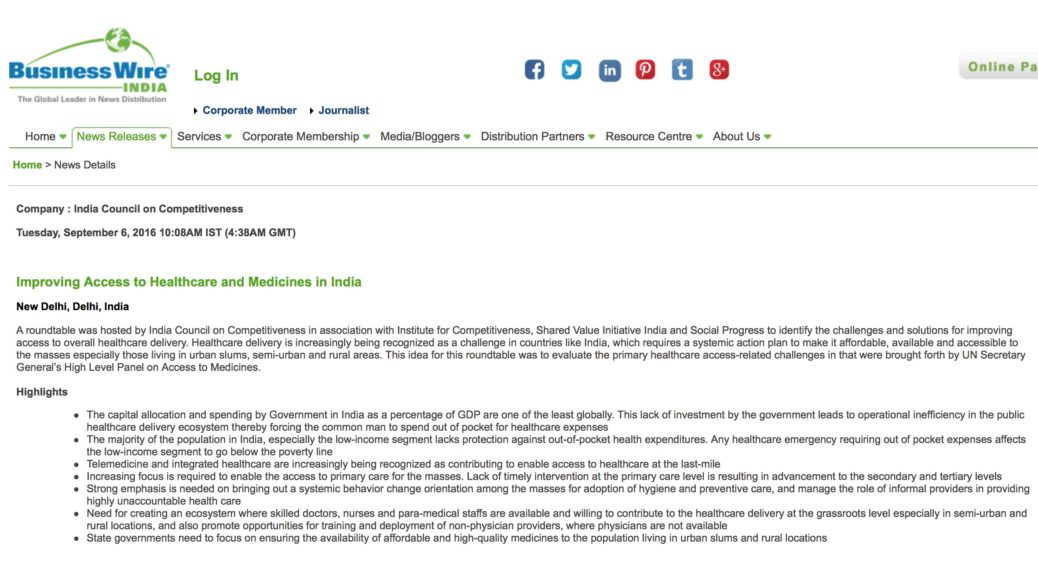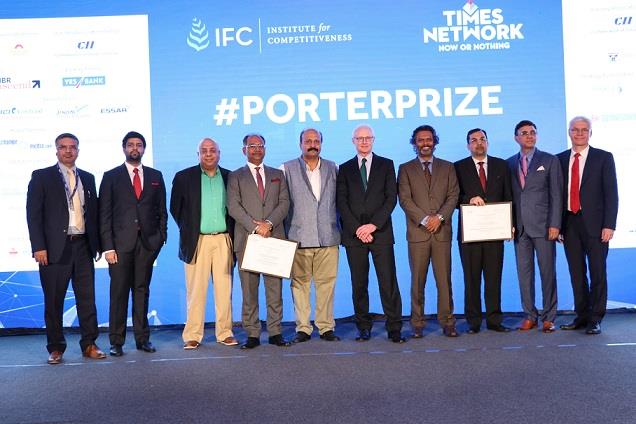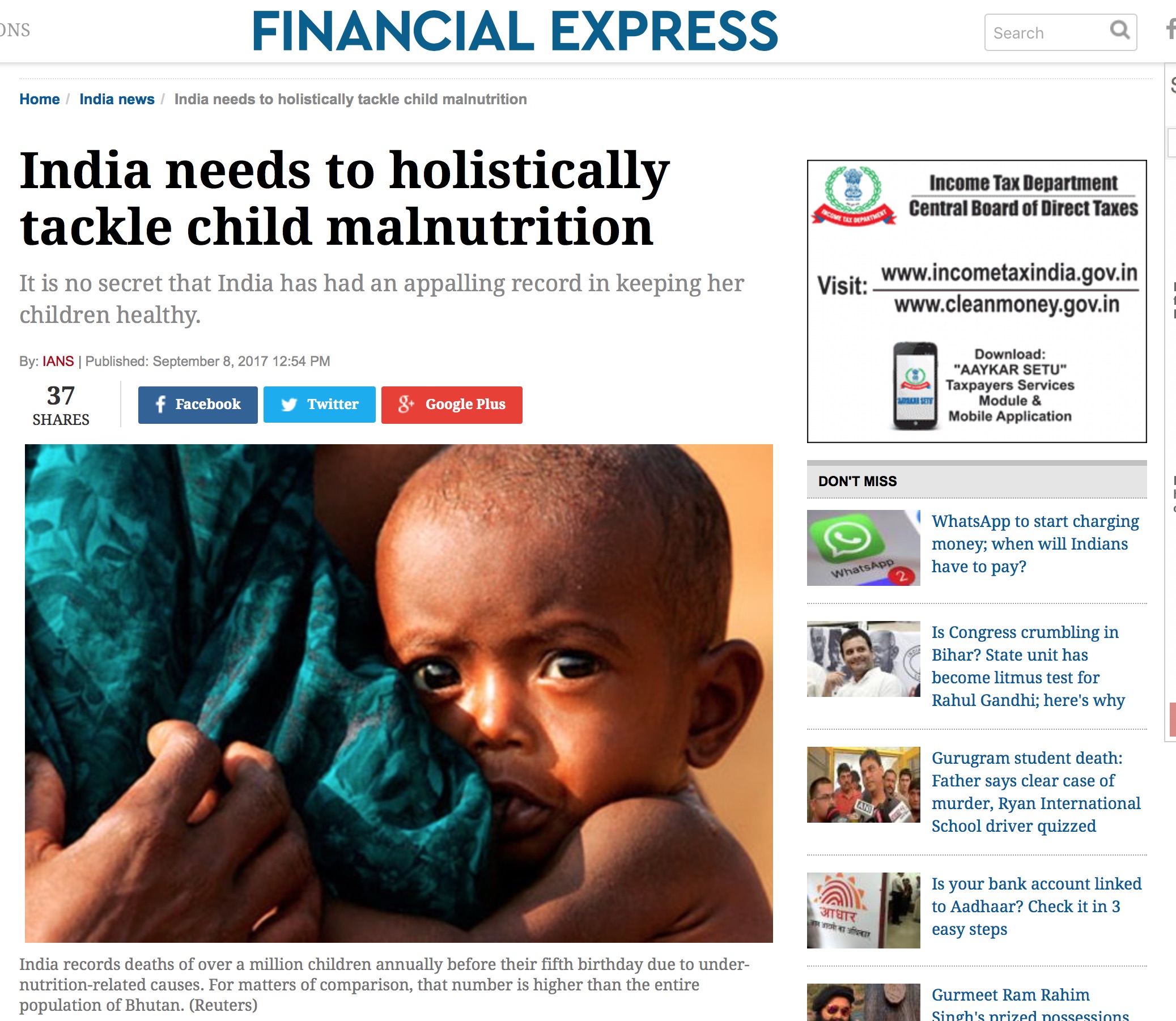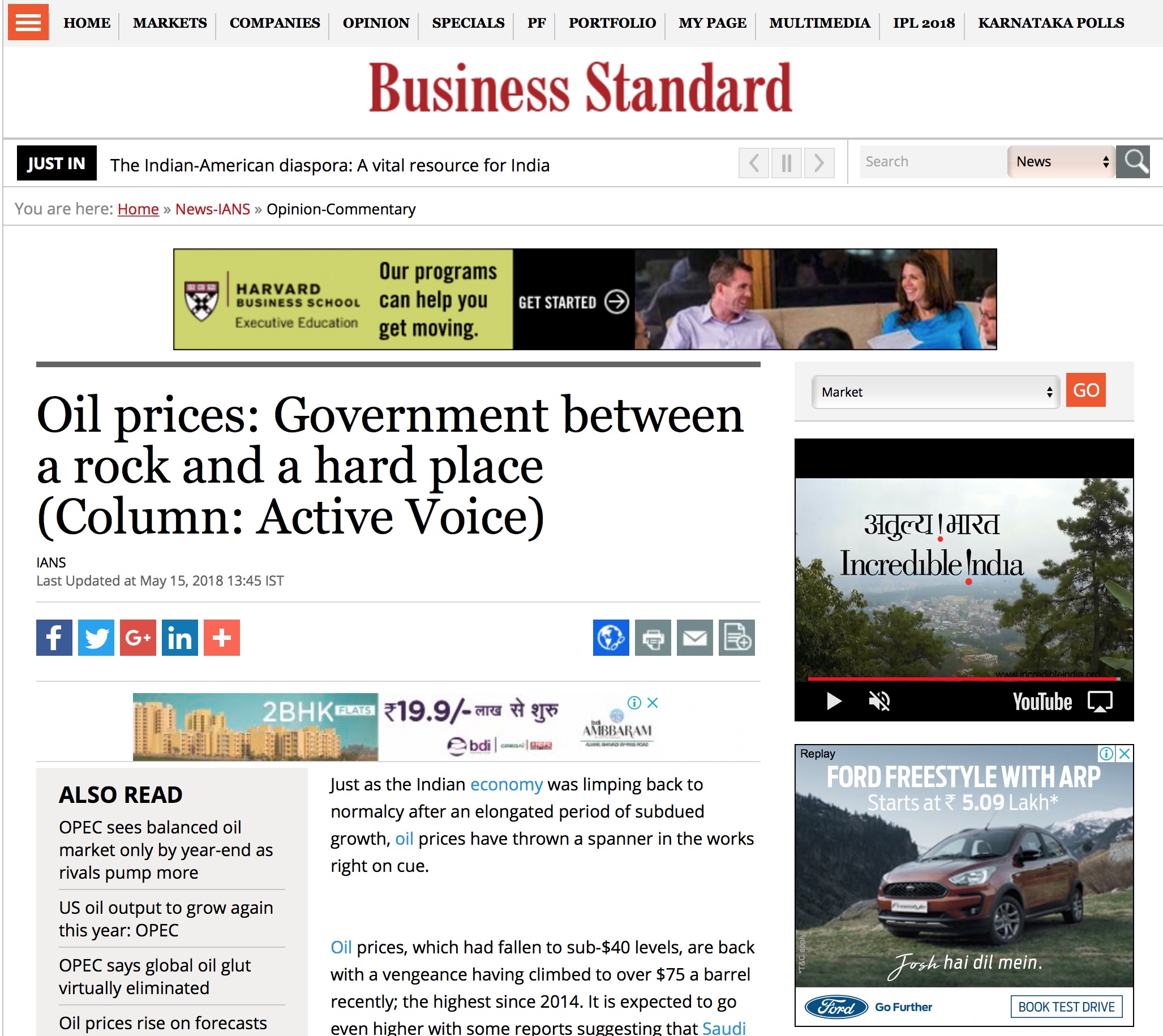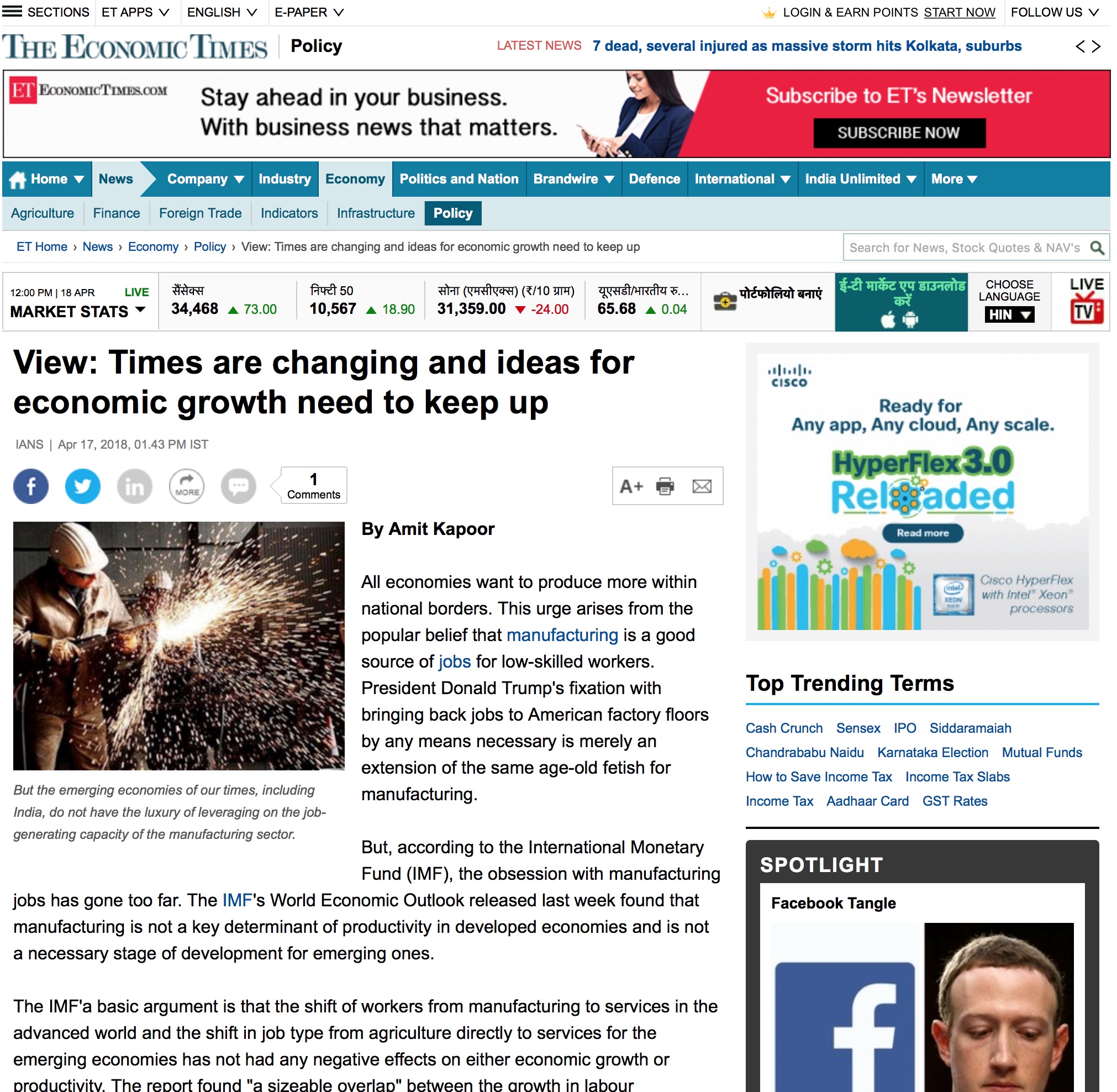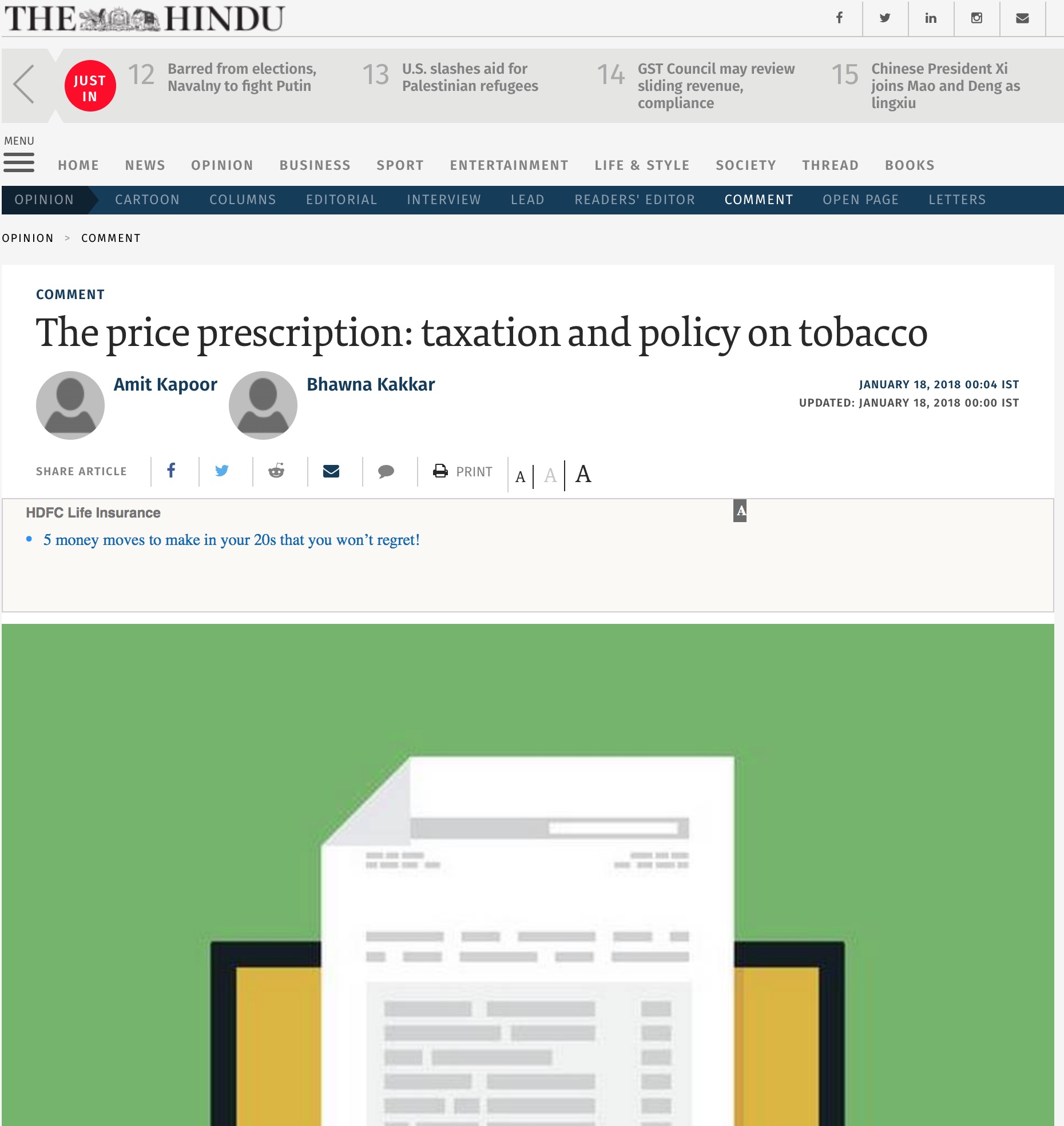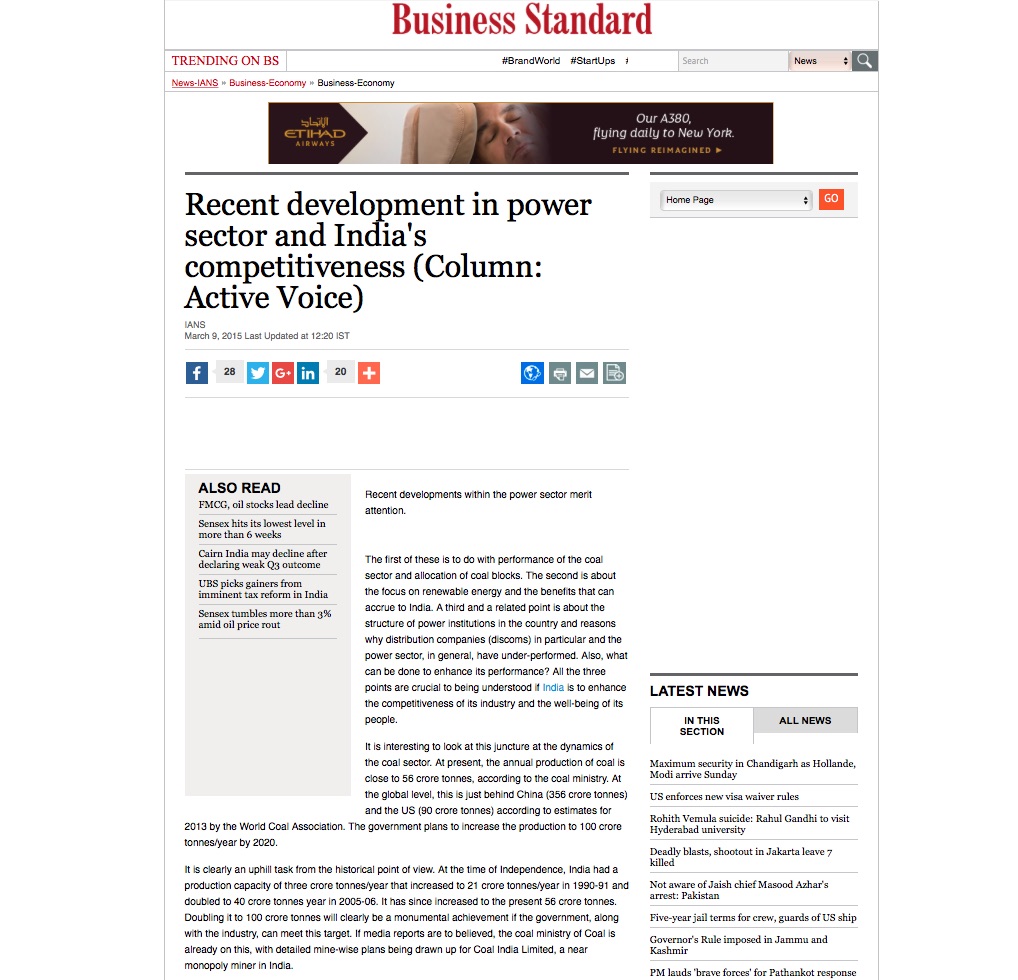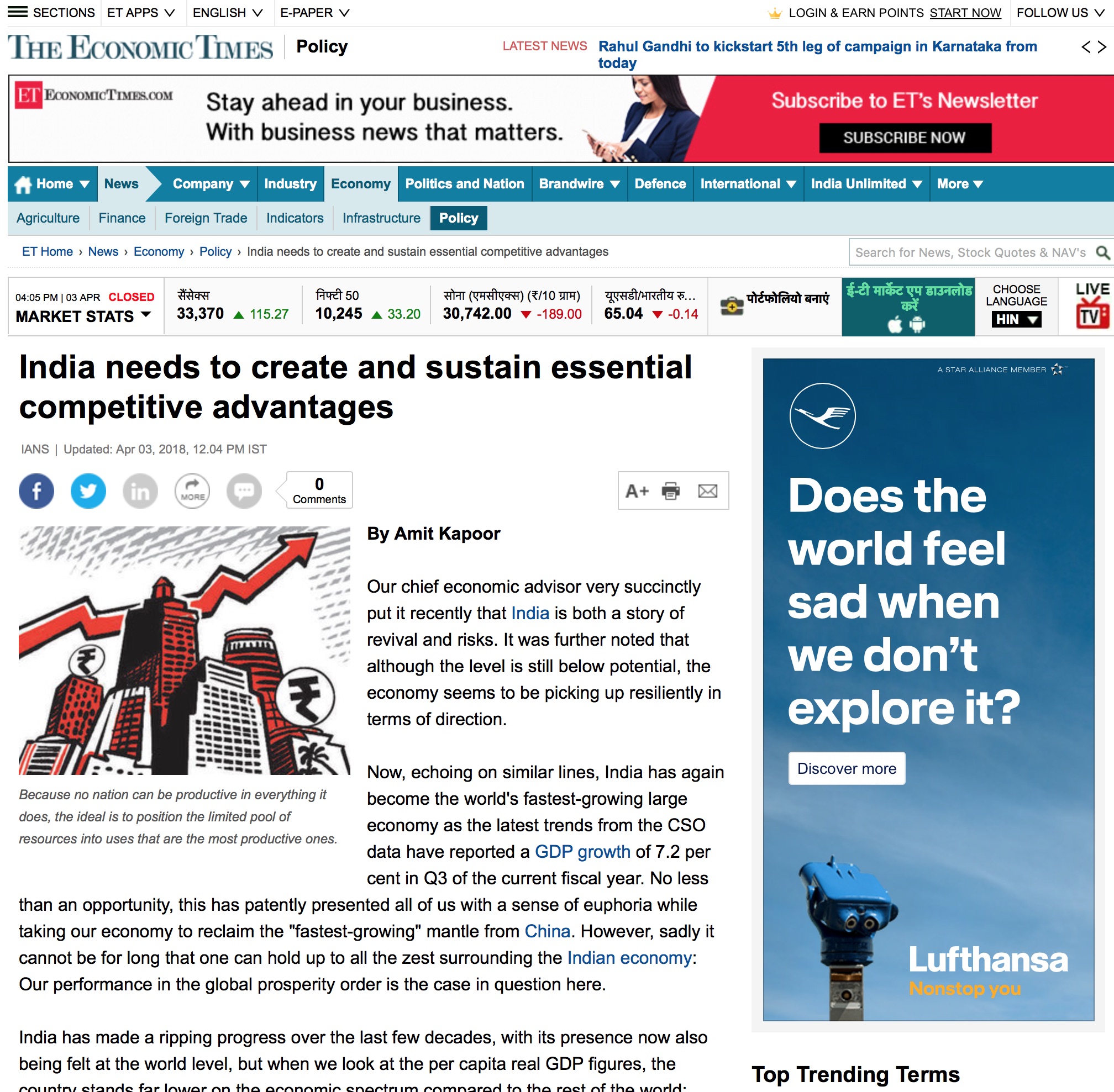Improving Access to Healthcare and Medicines in India
Tuesday, September 6, 2016 10:08AM IST (4:38AM GMT)
A roundtable was hosted by India Council on Competitiveness in association with Institute for Competitiveness, Shared Value Initiative India and Social Progress to identify the challenges and solutions for improving access to overall healthcare delivery. Healthcare delivery is increasingly being recognized as a challenge in countries like India, which requires a systemic action plan to make it affordable, available and accessible to the masses especially those living in urban slums, semi-urban and rural areas. This idea for this roundtable was to evaluate the primary healthcare access-related challenges in that were brought forth by UN Secretary General’s High Level Panel on Access to Medicines.
Highlights
- The capital allocation and spending by Government in India as a percentage of GDP are one of the least globally. This lack of investment by the government leads to operational inefficiency in the public healthcare delivery ecosystem thereby forcing the common man to spend out of pocket for healthcare expenses
- The majority of the population in India, especially the low-income segment lacks protection against out-of-pocket health expenditures. Any healthcare emergency requiring out of pocket expenses affects the low-income segment to go below the poverty line
- Telemedicine and integrated healthcare are increasingly being recognized as contributing to enable access to healthcare at the last-mile
- Increasing focus is required to enable the access to primary care for the masses. Lack of timely intervention at the primary care level is resulting in advancement to the secondary and tertiary levels
- Strong emphasis is needed on bringing out a systemic behavior change orientation among the masses for adoption of hygiene and preventive care, and manage the role of informal providers in providing highly unaccountable health care
- Need for creating an ecosystem where skilled doctors, nurses and para-medical staffs are available and willing to contribute to the healthcare delivery at the grassroots level especially in semi-urban and rural locations, and also promote opportunities for training and deployment of non-physician providers, where physicians are not available.
- State governments need to focus on ensuring the availability of affordable and high-quality medicines to the population living in urban slums and rural locations
The discussion outcomes gave some interesting insights into the whole set of challenges and required actions in enabling access to right healthcare to the right segment in India.
The first point, which came out was that doing away with IPs would not improve the healthcare access to the underserved population in countries like India. Rather, the focus is required on enhancing the healthcare delivery ecosystem by strengthening the affordability, availability, accessibility, awareness, and acceptability of healthcare sector.
Udyan Dravid, Founder, ConnectHub commented, “Healthcare in India need to focus on three dimensions – affordability, accessibility, and quality. Around 8-10% of the bed capacity in Delhi is occupied by patients suffering from hygiene-related diseases, which in fact are not really diseases and could be avoided.”
Sandeep Goyal, CEO, Shared Value Initiative India highlighted the issue of awareness and acceptance at the grassroots level. He said, “Lack of awareness towards preventive healthcare, hygiene and cleanliness is leading to advanced healthcare issues for the poor. Also, rural people have more faith in local quacks rather than going to the public or private healthcare setup because these quacks can cure them quickly by giving injections or other medicines thereby saving their time and earning hours. However, this makes an adverse impact on their health in the long term.”
The second point, which emerged from the discussion was regarding the increasing role of technology in enhancing the healthcare delivery to the last-mile. Sandeep Ahuja, Founder and CEO, Operation Asha laid down the importance of technology in healthcare delivery. He said, “In coming ten years, we will witness the change where the role of public sector will get converted into that of a facilitator. Technology is going to play a critical role in extending the reach of healthcare to the masses living in rural areas.”
The third point, which gained attention was focusing on the base ecosystem and addressing the context. Kabir Sheikh, Senior Research Scientist and Director, PHFI highlighted the distortion in healthcare access and delivery across cities versus rural areas. Also, he raised the issue of primary care ecosystem and capacity building. He said, “We have significant challenge of equitable access to primary healthcare in villages. Also, we need to improve the health professional education system to be more oriented to primary health care, and create organizational environments for doctors and nurses to work effectively at the grassroots level. We should also activate the potential of trained non-physician providers in providing health care in areas where physicians do not practice.”
The fourth point highlighted, involved bringing in the accountability and performance measurement across the healthcare ecosystem. Barun Mitra, Director, Liberty Institute gave an important comment on accountability and regulation in healthcare. He said, “What is needed today for efficient healthcare access is ensuring the accountability at all levels and among all stakeholders involved in healthcare sector.”
Brijesh Rathore, Business Director, South Asia, Diversey Care also commented, “The hospitals need to focus on setting up accountability at each level by measuring the outcomes. Only then, we can have better execution and better quality service.”
The fifth point, which came out from the discussion was regarding the systemic approach towards skill development, frugal innovation, and collaboration.
Anjan Bose, Secretary General, Healthcare Federation of India said, “India is one of the very few countries having the dual challenge of managing the communicable and lifestyle diseases. To enable healthcare delivery for the masses, what we need to focus upon is a combination of skill-building, innovation, infrastructure, and collaboration.”
The final point, which emerged from the discussion, was regarding the lack of spending by the government on ensuring the availability of medicines. This was highlighted as an important requirement for making the overall healthcare system affordable and accessible to the masses.
It is time for India to address the healthcare delivery challenges using a structured solution approach. This solution based approach will involve the focus on addressing the supply-chain challenges, increased government investments, access to insurance, integrated healthcare, resource capacity building, creating mass awareness and collaboration among different stakeholders.
About India Council for Competitiveness
The India Council on Competitiveness is a non-partisan and a non-governmental network of leaders from corporate CEO, University Chancellors, and Civil Society leaders working to make India a competitive nation. The Council, created in collaboration with the U.S. Council on Competitiveness; is based in Gurgaon, India and is an association of distinguished members from industry, academia, think tanks, media and researchers. The mission of the India Council is to set an action agenda to drive Indian competitiveness, productivity and leadership in world markets to raise the standard of living for all Indians.
Notes to Editors
Neera Vohra (neera.vohra@competitiveness.in)
For more information on the discussion, please visit the following link: http://compete.org.in/increasing-access-to-healthcare-in-india/. The report on “Enabling Access to Healthcare in India” will be available on September 7, 2016.

